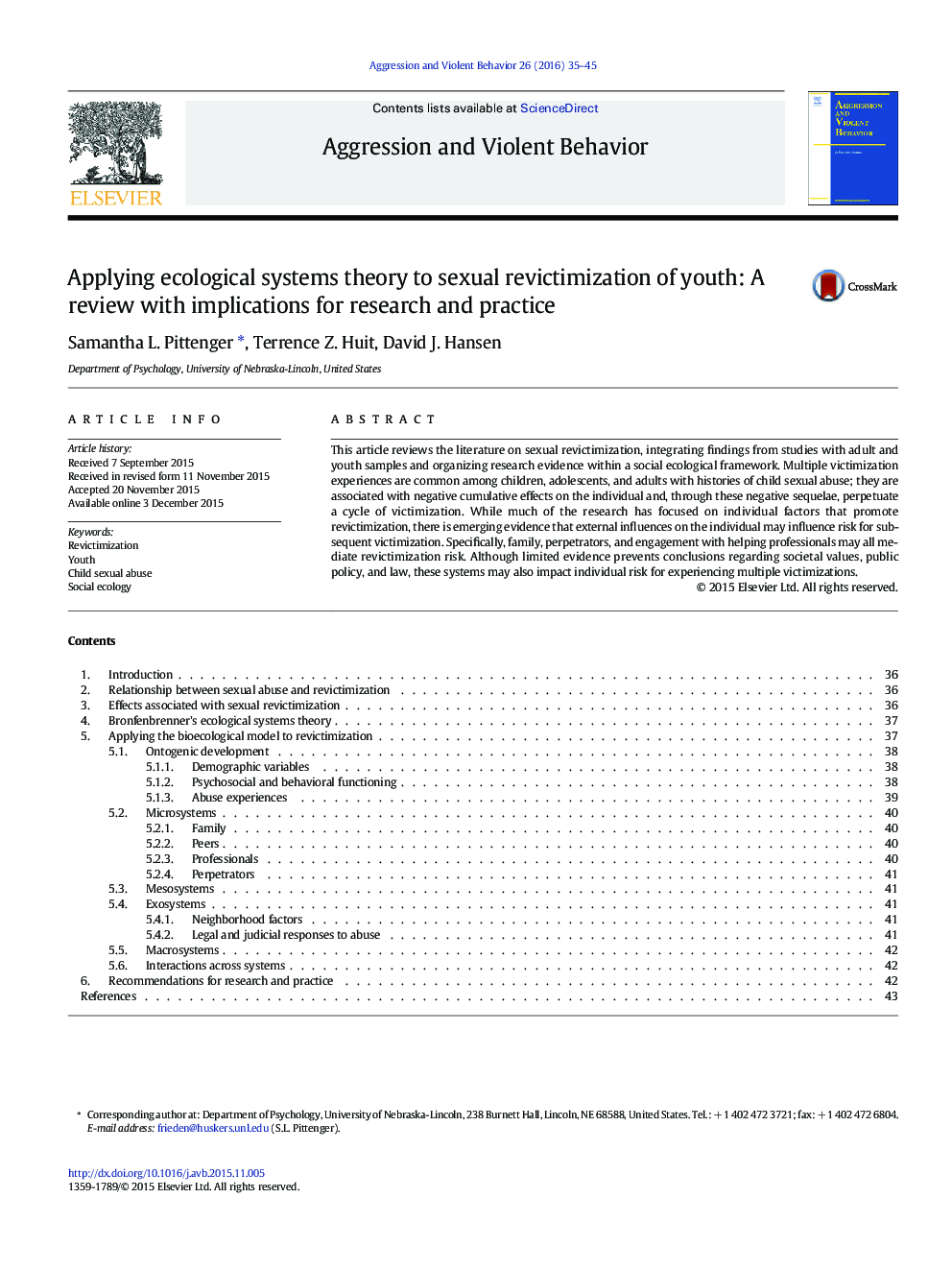| Article ID | Journal | Published Year | Pages | File Type |
|---|---|---|---|---|
| 94458 | Aggression and Violent Behavior | 2016 | 11 Pages |
•Child sexual abuse victims are at increased risk of additional sexual victimization.•Various developmental contexts influence risk for revictimization.•Applying an ecological perspective to revictimization reduces victim blaming.•Future research will benefit from using the ecological model as a unified framework.
This article reviews the literature on sexual revictimization, integrating findings from studies with adult and youth samples and organizing research evidence within a social ecological framework. Multiple victimization experiences are common among children, adolescents, and adults with histories of child sexual abuse; they are associated with negative cumulative effects on the individual and, through these negative sequelae, perpetuate a cycle of victimization. While much of the research has focused on individual factors that promote revictimization, there is emerging evidence that external influences on the individual may influence risk for subsequent victimization. Specifically, family, perpetrators, and engagement with helping professionals may all mediate revictimization risk. Although limited evidence prevents conclusions regarding societal values, public policy, and law, these systems may also impact individual risk for experiencing multiple victimizations.
